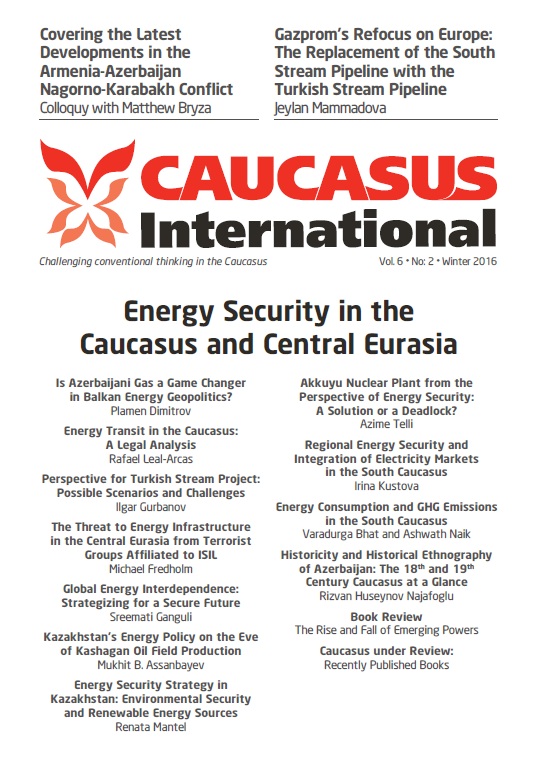Kazakhstan’s Energy Policy on the Eve of Kashagan Oil Field Production
The article examines the geopolitics of transport communications in Central Asia and the Caspian, and Kazakhstan’s energy policy. Kazakhstan suffers from geopolitical isolation and preoccupied with identifying new inroads to foreign markets. This has become the main focus of its energy policy. Despite involvement by the Western countries, China, and Russia in regional energy geopolitics, Kazakhstan faces tough geopolitical choices. Astana is still in search of an effective energy policy that would enable further diversification of its transport communications. The existing transit routes for the Kashagan oil, as proposed by Russia and other external actors, do not fully support the energy security of Kazakhstan. As for Kashagan oil field production, the article concludes that the main obstacles include several complicated issues such as technical problems, as well as risks to the environment of the Caspian Sea. The new context, namely the dramatic decline of oil prices and its consequences for the global economy, makes it difficult to project a clear vision for the project’s success.
Latest news
- 03/17/2020 Call for Submission: “Non-Alignment Movement and Its Perspective in International Affairs”. Deadline: 1 July 2020 2626 views
Popular articles
- 02/24/2020 The Role of Irredentism in Russia’s Foreign Policy 2536 views
- 02/24/2020 Construction of sub-national identity vis-à-vis parent state: Gagauz case in Moldova 2218 views
- 02/24/2020 The Conflict in Ukraine - The Geopolitics of Separatism and Divergent Identities (Commentary) 2073 views
- 02/24/2020 The Role of the Soviet Past in Contemporary Georgia 2044 views





